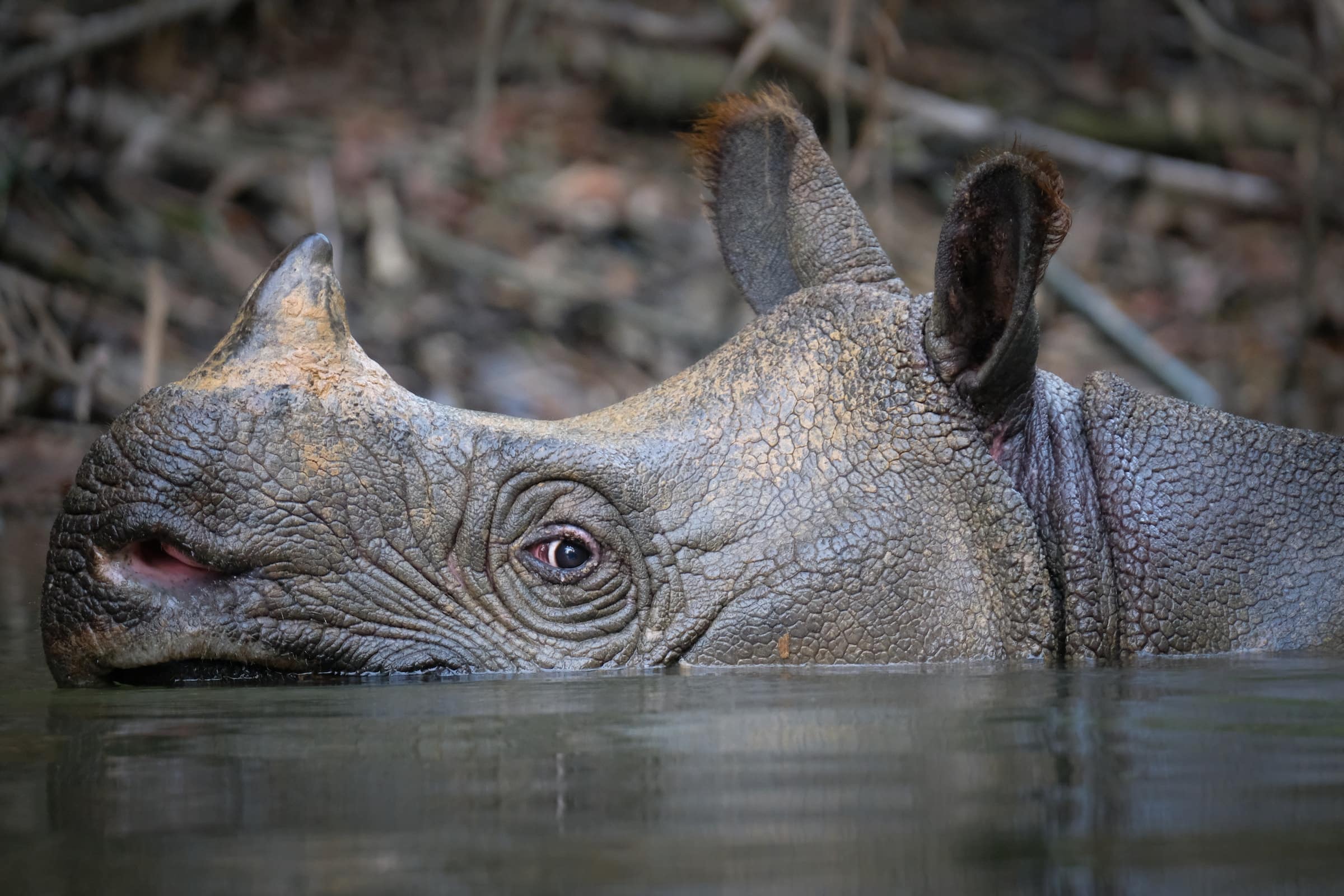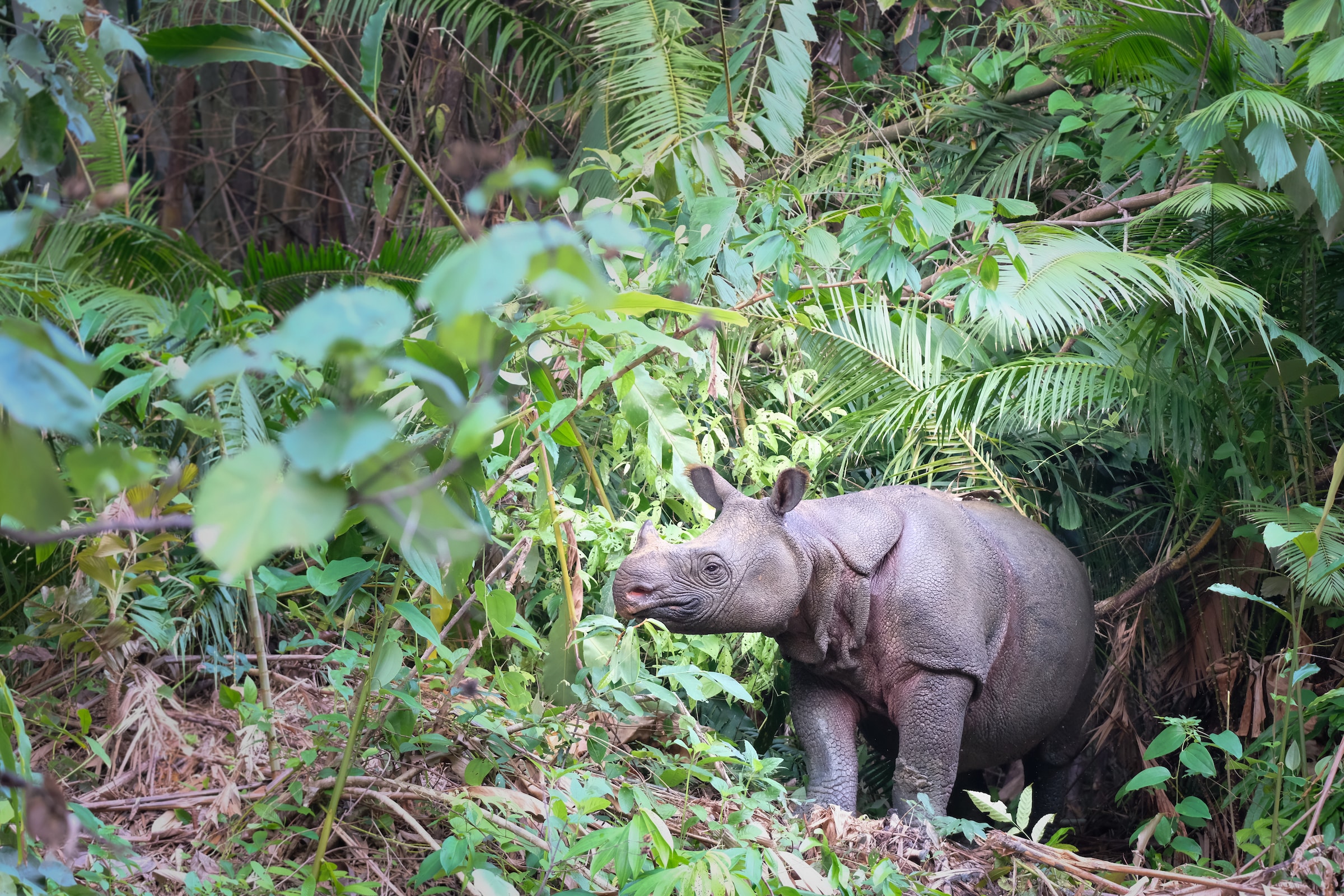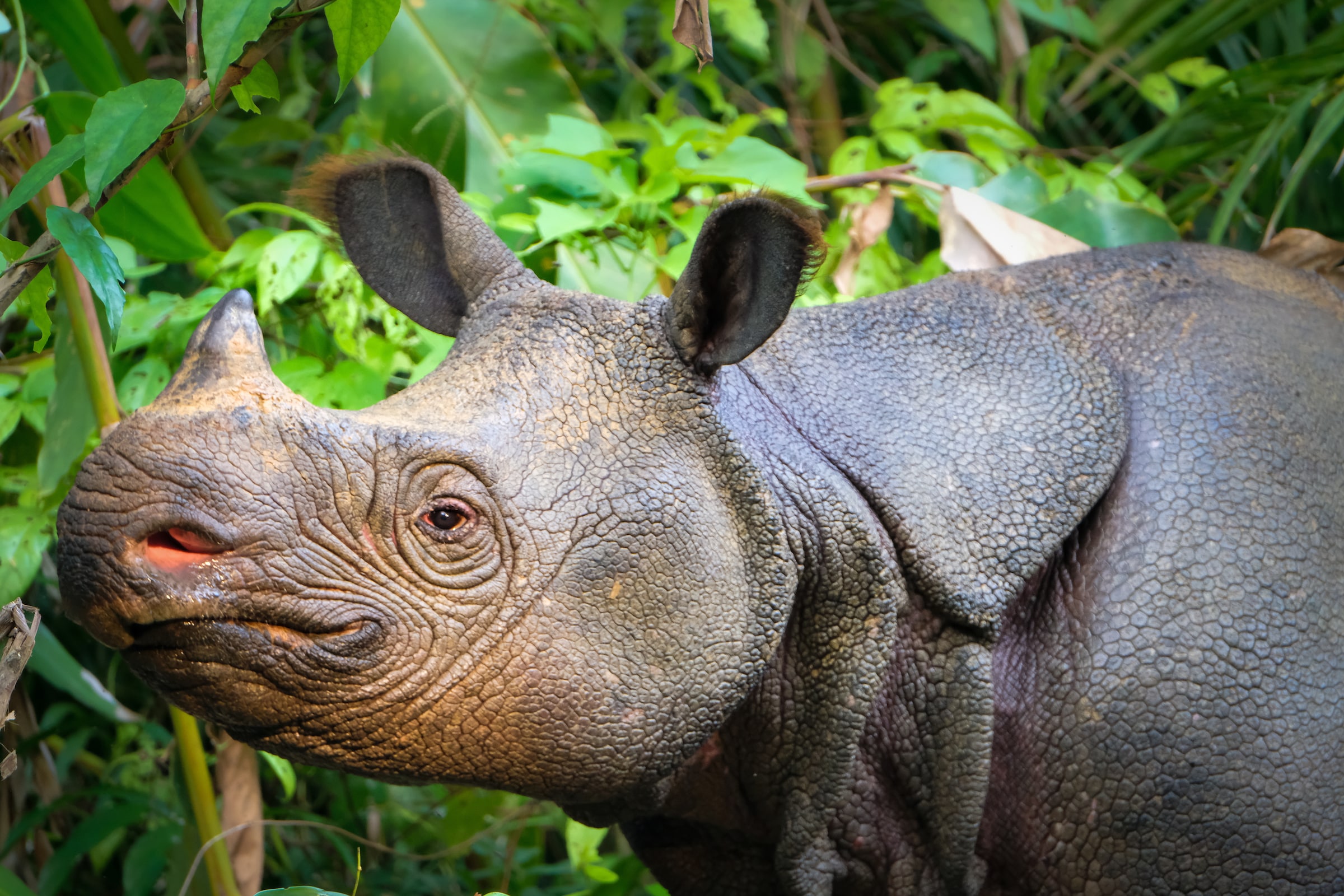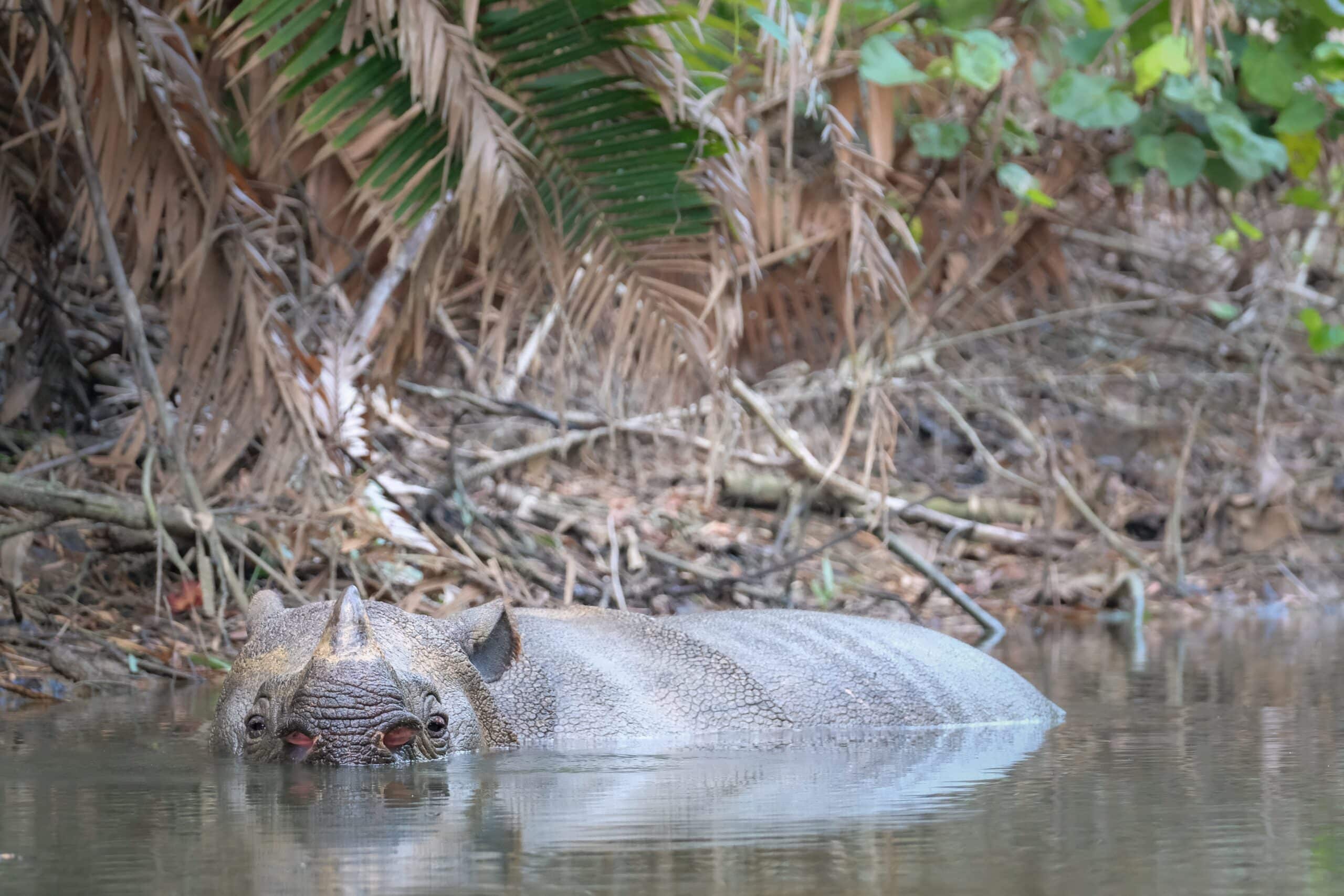Shocking news that up to 26 Javan rhinos may have been poached in Indonesia’s Ujung Kulon National Park, the last remaining stronghold of the species, since 2018 has brought the dire need for increased security measures and holistic protection to light. The previous estimate for the total population of the species was approximately 70 individuals, so the recent revelation that such a large portion of their population may have fallen victim to wildlife criminals is a massive blow to efforts to prevent their extinction.

These losses are the first reported incident of poaching in Ujung Kulon in more than two decades. An extensive and on-going investigation was launched to determine how such a devastating breach could take place in one of the most highly protected conservation areas in the world. The investigation revealed that the poaching gangs responsible for this spree were likely fed information about weak points in the park’s security by a former member of park patrol. One of the primary poachers arrested by authorities was in possession of detailed maps showing the locations of rhinos within the park, along with camera trap data spanning over a decade. Such information likely could only have been provided by someone on the inside.

Park staff expressed outrage at such brazen poaching efforts within their area of operation, as did many members of surrounding communities. While some arrests have been made, it is unclear if all leaks in park security have been discovered and dealt with. This uncertainty has heightened fears about the future of Javan rhinos, since their entire remaining population is found in a location whose security has now been called into question. Previous doubts about the accuracy of Javan rhino population estimates have also been levied at park staff and the Indonesian government in the recent past.

The Rhino Recovery Fund (RRF) is greatly invested in protecting the world’s last Javan rhinos and helping their fragile population recover, and has supported the work of the International Rhino Foundation (IRF) in Ujung Kulon to safeguard them from extinction. This recent news about the loss of so many rhinos within the park is deeply worrying, and improvements must be made to ensure the species isn’t lost to more wildlife crime. Earlier this year, the RRF issued another grant to IRF to facilitate exactly that kind of protection.

“The Javan rhino is the most Critically Endangered rhino species, and we really need to pull out all of the stops to prevent them from going extinct,” says Dr. Markus Hofmeyr, Director of the Rhino Recovery Fund. “The only way that’s going to happen is if the government acknowledges that they have failed to adequately protect the rhinos, at least in recent years. With the support of forward-thinking donors and partners that are willing to take on the challenge, it is possible to turn the tide and help Javan rhinos recover. It requires very astute protection and intelligence systems, so there’s advanced warning if there’s any indication that the rhinos may be poached. It also requires holistic approaches to involve local communities in rhino conservation, so that they become the first line of defense. If we can make this happen in the next year, then there’s a good chance the Javan rhinos can remain safe—it’s been done elsewhere with other rhino populations, it just takes time and commitment.”
Read more about the wave of Javan rhino poaching and the details of the investigation for more insights into the current status of the species.

